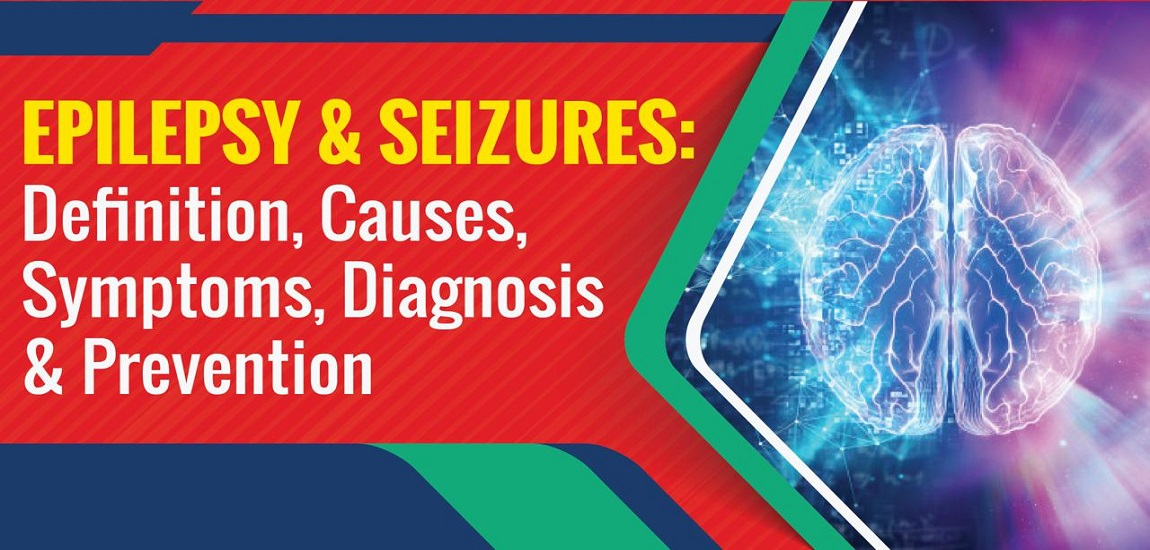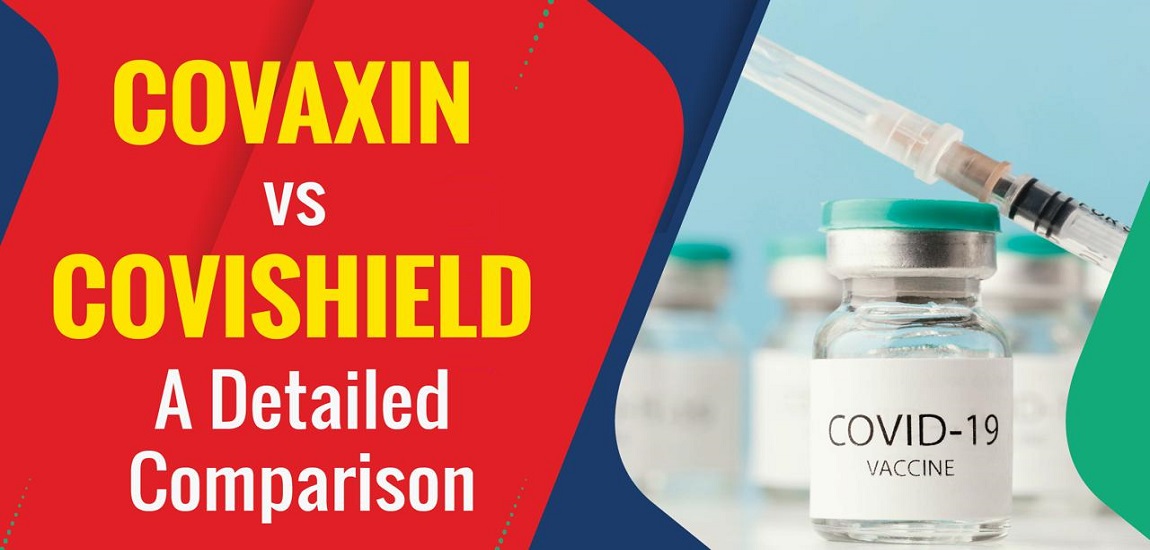
- By JRSH Admin
- In Health and Tips,
- Posted April 24, 2021
Epilepsy and Seizures: Definition, Causes, Symptoms, Treatment, and Prevention
Epilepsy is a common neurological disease that causes two or more seizures. You will understand the meaning of Epilepsy and Seizures, their causes and symptoms, and their diagnosis and prevention with us.
What is Epilepsy? Are Seizures and Epilepsy the same?
Epilepsy is a neurological disease in which a disorder of the brain is characterized by repeated seizures. Epilepsy is also called a “seizure disorder.”
When a person has had two or more seizures that haven’t been provoked by specific events like trauma, infection, fever, or any chemical change, then they’re considered to have a neurological disorder “epilepsy”.
Seizures and Epilepsy are not the same. Seizures are a single occurrence of abnormal electrical activity in the brain. There are several causes of seizures, including meningitis and encephalitis. Whereas Epilepsy is a chronic neurological disorder that causes two or more repeated seizure activity in the brain.
What are the types of Epilepsy and Seizures and their symptoms?

Depending on whether a part of the brain or the entire brain is affected, epilepsy is classified into two main groups:
- Generalized Seizures: The seizures produced by widespread abnormal electrical impulses present in the whole brain.
- Focal or Partial Seizures: Seizures produced by electrical impulses that generate from a comparatively small or “localized” part of the brain.
Generalized epilepsy is again further classified based on the symptoms:
- Generalized tonic-clonic:
- Symptoms: A person loses consciousness and usually collapses. The loss of consciousness is followed by generalized body stiffening the first tonic phase of the seizure, then by violently jerking the second clonic phase of the seizure, then the patient goes into a deep sleep known as the after-seizure phase. In this kind of seizure, several injuries and accidents may occur, like tongue biting, etc.
- Absence:
- Symptoms: In this, a brief loss of consciousness is faced by the patient with few or no symptoms. Absence seizures begin and end abruptly and might occur several times in a day.
- Myoclonic:
- Symptoms: In this, patients sometimes describe the jerks as brief electrical shocks. When violent, these seizures result in dropping or involuntarily throwing objects.
- Clonic:
- Symptoms: Repetitive and rhythmic jerking movements that involve each side of the body at the same time.
- Tonic:
- Symptoms: Muscle stiffness and rigidity.
- Atonic:
- Symptoms: Consist of a sudden and general loss of muscle tone, particularly within the arms and legs, which often leads to a fall.
Partial epilepsy is again further classified based on the nature symptoms:
- Motor: Symptoms include muscle rigidity, stiffening, jerking, head-turning, etc.
- Sensory: It involves affecting the senses of the body (vision, hearing, smell, taste, or touch).
- Autonomic: Symptoms involve gastric uprising (sensation in the stomach).
- Psychological: It is characterized by various experiences involving emotions (such as fear, pleasure), memory, or other psychological changes.
What are the causes of Epilepsy and Seizures?
The exact cause of epilepsy is still not determined. Several causes can lead to seizures.
Common causes include:
- Lack of oxygen to the brain
- A cyst (brain tumor)
- Alzheimer’s disease or dementia
- Traumatic brain injury
- Post-traumatic epilepsy- Scarring on the brain after a brain injury
- Serious illness or very high fever
- strokes
- Lack of oxygen to the brain
- Use of the maternal drug
- Chemical disturbances in the blood
- Prenatal injury, brain malformation,
- Lack of oxygen at the time of birth
- Infectious diseases such as AIDS and meningitis
- Developmental disorders are genetic or neurological diseases
Do all seizures require medical consultation and investigations?
All types of seizures require medical consultations and investigations of the doctors. The doctor may advise doing some tests like CT, EEG, or MRI scan of the brain depending on his assessment.
Do all seizures require treatment?
Not all seizures require treatment like simple febrile seizures in children don’t need regular medications and treatment but in other types of seizures, it is advised to take treatment in the first stage of attack because:
- Seizures are unpredictable and can not be treated and may cause serious physical injury and even death depending on the occurrence of seizures.
- Seizures may also strengthen the epileptic circuits in the brain.
- Recurrent seizures may lead to social stigma, impacts employment and education.
- Recurrent seizures can have a negative psychological impact on the brain.
Are epilepsy medications safe and effective?
Various safe and effective medications are available for the treatment of epilepsy but no one claims that epilepsy will be cured by the medication although it may slow down or may control epilepsy for a time.
Medications of epilepsy depend upon the type of seizures, body weight, age, gender, reproductive status, and other illnesses.
The name of one of the epilepsy medications is Antiepileptic drugs (AED) medication. There is no specific formula to choose which seizure medicine to use for a particular patient. No medicine dominates for effectiveness, and all have some side effects.
Medications of epilepsy should be started and stopped very slowly. One type of medicine is sufficient for the treatment. Uncommonly multiple medicines could also be used simultaneously to get seizures in control. Injections and nasal sprays can be used only in emergencies.
When can the medicines be stopped?
Medications can control seizures in about two-thirds of individuals with epilepsy. The drugs and medicines are not a cure, but seizures don’t always last a lifetime, almost half of people with epilepsy, the seizures may stop on their own or may after a seizure-free period of 2 to 4 years.
After years without seizures, many people want to stop their medication. Many of them will stay seizure-free, and a few won’t. If you have had just one seizure, some doctors will consider discontinuing the medication if you have been seizure-free for 6 to 12 months or more than that.
Can Epilepsy be cured?
There is no cure for epilepsy but early treatment may change your life and be helpful for you. Early treatment can also make an enormous difference. Uncontrolled or prolonged seizures can cause brain damage. Epilepsy can increase the risk of sudden unexplained death.
This condition can be successfully managed by the treatments. Various surgeries are also available that promise to cure and give freedom to epilepsy.
When is a patient considered for Epilepsy surgery?
Only those patients considered for epilepsy surgery have failed one or two medical therapies. The doctors may recommend epilepsy surgery to treat epilepsy if you have seizures that can not be controlled by medications.
You must have tried two or more medications before you are qualified for surgery. The surgical process for epilepsy has a high success rate. it may significantly improve your quality of life.
Epilepsy can vary from one person to another person. Numerous kinds of surgery are available to treat it including:
- Respective surgery
- Multiple subpial transection
- Hemispherectomy
- Corpus callosotomy
Your doctor can assist you to understand the potential benefits and risks of surgical options. Although epilepsy surgery is quite expensive.
What are the other treatment options in Epilepsy?
The other treatment options in Epilepsy are:
- Vagus nerve stimulation (VNS)
- Responsive neurostimulation (RNS)
- A special ketogenic diet (especially in children)
Why do seizures recur while of treatment?
There are certain factors responsible for the recurrence of seizures after or undergoing treatment.
- Irregular timing of taking the dose.
- Consumption of alcohol and smoking.
- Poor diet.
- Tumors or other progressive lesions as the underlying pathology.
- Focal neurological findings
- Inadequate sleep.
- Interactions with other medicines.
- Status epilepticus.
- Family history of epilepsy.
Is consultation required for all seizures in an epilepsy patient on treatment?
Well! It is not necessary to consult in every seizure in epilepsy. Consultation required in the following situations:
- Having more than one seizure in a day.
- The duration of Prolonged seizures is more than 5 minutes.
- Having a non-habitual seizure (an unusual type of seizure).
- Prolonged unconsciousness/ unresponsiveness even after cessation of seizures.
- Having a seizure with fever.
- Having seizures during pregnancy.
- Injuries sustained during.
What are the ‘DOs’ and ‘DONTs’ in a seizure?
The Dos and Don’ts during a seizure –
The Do’s are:
- Safely cushions the patient’s head who is suffering from it.
- Protect the patient from a nearby object.
- Loosen their clothes around the neck.
- Call for emergency assistance whenever needed.
- Note down the duration of the seizure.
- Stay with the patient until they recover.
- Restrict the patient from having alcohol and drugs.
The Don’ts are:
- Don’t put anything in the patient’s mouth to prevent tongue bite.
- Don’t try to move the patient.
- Don’t put the light directly in the patient’s eye as it may give stress.
- Don’t try to restrain the patient.
- Don’t shout and panic at the time of seizure that causes a critical situation.
- Don’t give any kind of beverage at that time.
What are the precautions for patients with Epilepsy?
- By reducing the risk of traumatic brain injury.
- You can use seat belts, passenger seats, bicycle, and motorcycle helmets
- Prevent falls whenever possible
- Treat traumatic brain injury
- Reduce your risk of stroke and cardiovascular disease by eating a healthy diet, exercising.
- Keep vaccinations up to date. This lowers your chances of infections which may sometimes cause epilepsy.
- Adopting good handwashing habits and food safety habits to avoid an infection called cysticercosis, which is the most common reason behind acquired epilepsy worldwide.
- This parasitic tissue infection is caused by the tapeworm called Taenia solium.
- A study has been observed that the highest rates of infection are found in Latin America, Africa, Asia, and places with poor sanitation.
- Seek prenatal care and stay healthy during pregnancy.
- Avoid consumption of any kind of drugs, alcohol, smoking.
How do seizures impact pregnancy?
There are several factors in which seizures impact pregnancy.
- In 15% to 30% of women, there may be a rise in seizure frequency, most frequently in the first or trimester.
- The increased seizure frequency isn’t predictable by the kind of seizures the woman has, how long she has had epilepsy, or maybe the presence of seizures in a previous pregnancy. Even having catamenial epilepsy, seizures occurring with the Menstrual cycle (MC), doesn’t predict whether the woman will have more seizures during pregnancy.
- Some things are suggested as possible triggers for these seizures, including hormone changes, water, and sodium retention, stress, and decreasing blood levels of antiepileptic medications.
- Not enough sleep and not taking medications as prescribed could also be the most important factors that women with epilepsy can control, along with consulting her neurologist during this time.
- A risk could be more if the pregnant woman took multiple medicines.
- It’s a chance that women who are seizure-free for the 9 months before pregnancy have a high chance of remaining seizure-free during pregnancy.
Tags
Blog Search
Latest Posts
-
Ear Infections (Otitis Media): Top Triggers & How to Avoid Them?
April 11, 2025 -
Implantation Bleeding Vs Periods: Know the Difference
March 12, 2025 -
5 Tips for a Happy and Healthy Summer
February 27, 2025 -
Body Ache (Pain): Causes, Symptoms and Treatment Options
February 10, 2025 -
Fatigue and Exhaustion: Causes, Symptoms, and Treatment
January 08, 2025




